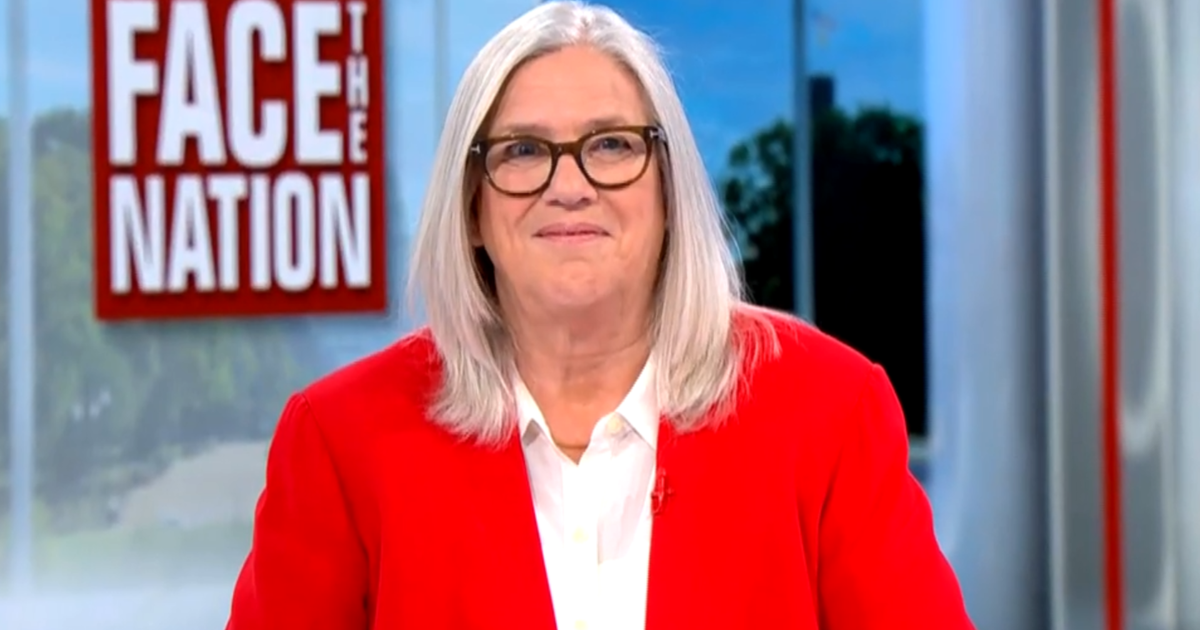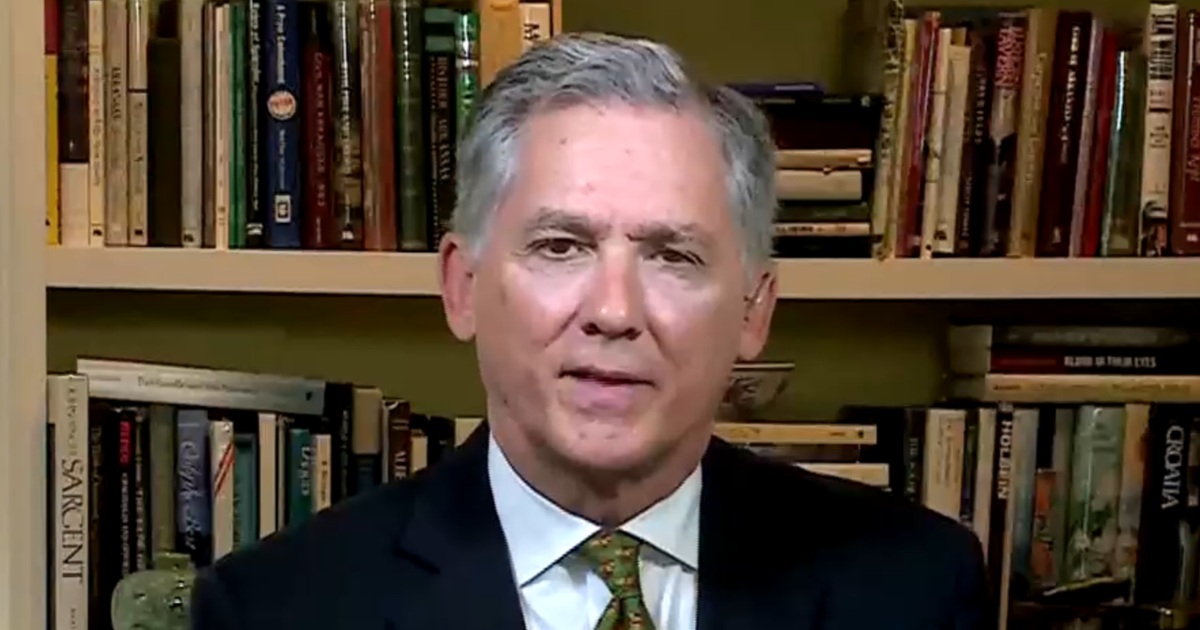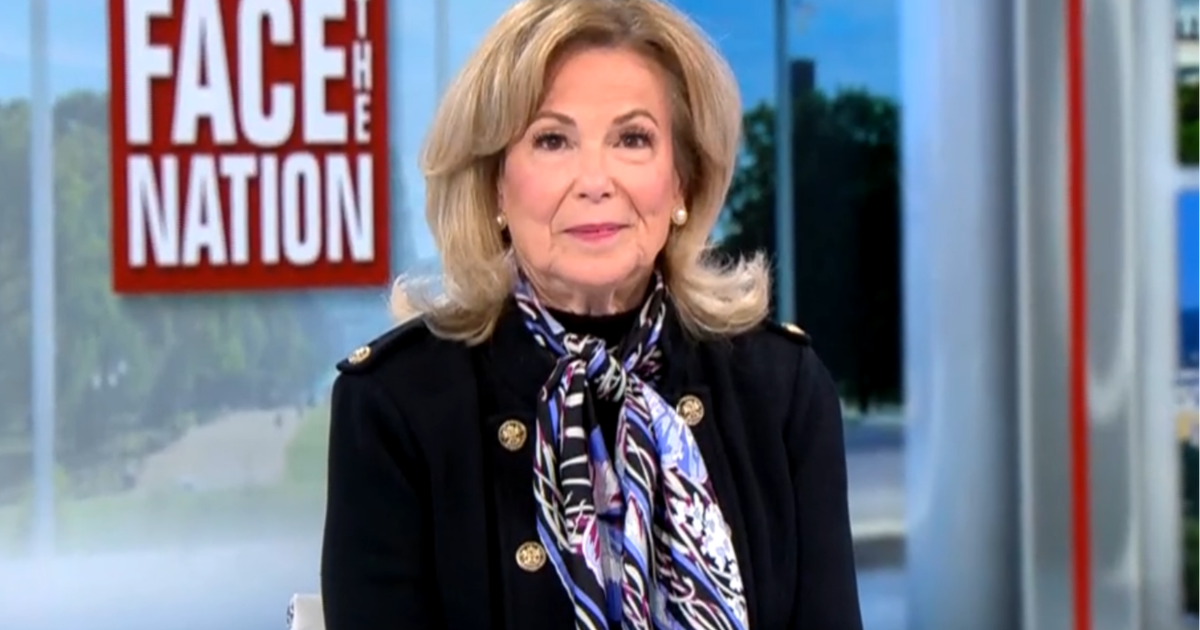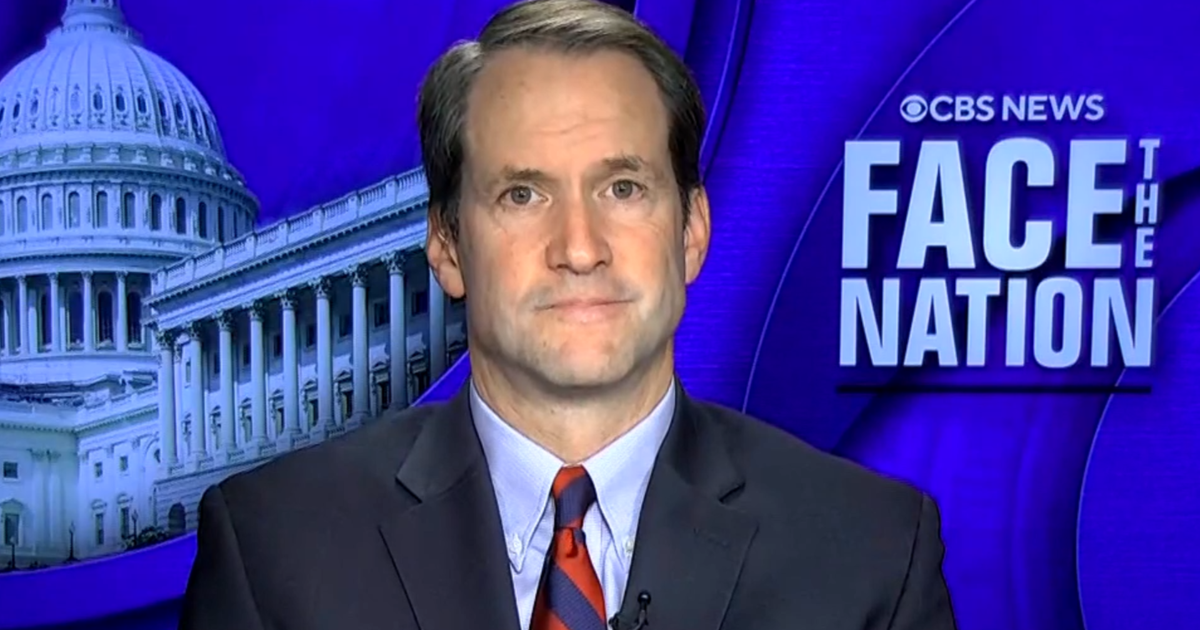Transcript: Gary Cohn discusses coronavirus and the economy on "Face the Nation," May 17, 2020
The following is a transcript of an interview with former National Economic Council Director Gary Cohn that aired Sunday, May 17, 2020, on "Face the Nation."
MARGARET BRENNAN: We go now to Gary Cohn. He is the former director of the National Economic Council under President Trump. He joins us from Long Island, New York. Good morning.
GARY COHN: Good morning, MARGARET.
MARGARET BRENNAN: You just heard the Federal Reserve chairman say no full recovery until there is a vaccine. But is the logical extension of that that there will be widespread unemployment well into next year?
COHN: So, first of all, I thought Chairman Powell did a very good job of summarizing the economic situation with some optimism and saying, look, if we don't get a second outbreak in the fall, which is just predicted, we don't know if that will happen or not, that we- we will continue to grow our economy and our economy will continue to have a natural recovery. So- and he was quite optimistic. And I am quite optimistic. The U.S. economy is quite resilient. And I- and I have to remind people that we ended up in this economic situation by necessity. We made a conscientious decision to shut down our economy and have everyone stay home to flatten the curve,--
MARGARET BRENNAN: Right.
COHN: --which was the right decision. But we created this economic situation. We can unwind this much more quickly than some of the comparisons that we're making in time where we're- where there were situations where our unemployment data happened over a long period of time--
MARGARET BRENNAN: Right.
COHN: --because a declining employment, declining sales.
MARGARET BRENNAN: But the- but the counter to that is there are people in immediate and severe pain now. I mean, the Fed revealed this week that 40 percent of people making under $40,000 a year lost their jobs in just one month in March.
COHN: Yeah.
MARGARET BRENNAN: I mean, we're hearing about food insecurity. The Fed chair pointed to Congress and you just heard the Speaker of the House say time is of the essence. Do you agree with her that more emergency aid needs to happen now or can you wait as Republicans want to do?
COHN: So I think I agree with 50 percent of what the- the Speaker was saying. So part of the HEROES Act was to get money or is to get money to the states, to the state and local government. And I do think that is very important. The state and local governments have been hard hit. The last thing we want to see is state and local governments in our time of need, having to lay off firemen, policemen, teachers, first responders, frontline people that we're reliant upon for our everyday life. That would be the complete wrong outcome here. So the federal government does have to step in and help out states. Just like they've helped small businesses and big bus- big businesses, they should help the states. That doesn't mean they should re- return the states to perfect financial condition. On the other half of the bill and- and you didn't ask me about that, there are some things in there that are much more aimed at a- a recovery than the current position we're in. In addition to that, if we really want to get the people back to work that Chairman Powell was talking about, we need to reopen the economy. Those people earning less than $40,000 a year are very important and we rely on them. But think about the health-care system. The health-care system is 20 percent of our GDP. If we get our health-care system back up and running, a lot of people in the lower wage bracket end up working in the health-care system. We need that to happen. If we get people going back to work, think of what it means to go back to work. You get in your car, you drive, you go to the gas station--
MARGARET BRENNAN: Sure--
COHN: You get in your car, you drive, you go to the gas station--
MARGARET BRENNAN: But it's not- it's not an either or, it's a how. Right?
COHN: It is--
MARGARET BRENNAN: And part of what Congress will be doing is figuring that out policy-wise. The administration is floating the idea of a payroll tax cut, slashing the corporate tax rate, suspending capital gains on assets bought between now the end of the year. How does any of that help the people who are in pain now?
COHN: Well look, MARGARET, we have to decide where we are. Are we responding to the crisis or are we trying to stimulate a recovery? And look, this is a very difficult situation because the federal government sits on top and then each state is going to decide what we're doing. If we're trying to respond to the crisis, we're right. And this is where I agree with the Speaker. We have to get the states money to help them respond to the crisis. If we're trying to stimulate economic growth, which would be the second half of the equation, we would use a different set of tools to stimulate economic growth. And we have a huge toolbox of tools we can use to stimulate economic growth.
MARGARET BRENNAN: But those specific proposals, payroll tax cuts, lowering the corporate interest rate. Does that do any of what you're talking about?
COHN: Well, look, payroll tax cuts puts money in the pockets of people who are working.
MARGARET BRENNAN: Right.
COHN: Right now, we're talking about the unemployed people.
MARGARET BRENNAN: Exactly.
COHN: Payroll tax cut doesn't help an unemployed person, so I'm not in favor of a payroll tax cut.
MARGARET BRENNAN: So what are you saying? Are you saying more direct--
COHN: I'm in favor of getting more people back to work.
MARGARET BRENNAN: OK. But are you also saying more direct aid to people? Because one of the questions around extending unemployment benefits as they are now, is this unintended consequence of people actually sometimes making more--
COHN: Exactly.
MARGARET BRENNAN: --on unemployment than if they take the option to go back to the employer that maybe furloughed them. So what's the solution there?
COHN: So, MARGARET look, I think you just hit on a very important concept. When we first started the enhanced unemployment benefits, we did it for a specific purpose. We wanted to and we needed to get people out of the economy. We needed them to stay home. So we changed the definition of unemployment. We said, look, stay home. Don't look for a job. We don't want you to leave your house. Now, I think we have to go back to the more traditional definition of unemployment. If you're unemployed, you get benefits. But if you need to be looking for a job and if you get offered a job, you should have to take that job and you should come off of unemployment benefits. We need to transition out of the extraordinary measures that were justifiable 60 days ago, 90 days ago, into the- the real world of what is the- the continuous definition of unemployment.
MARGARET BRENNAN: Two things. Do you think equity markets are behaving rationally? And are you accepting the idea that the tax cuts that you personally helped usher through from the Trump administration may have to disappear as so many on Wall Street are predicting to pay for all this?
COHN: Well, first of all,, I have- I have said it and I'll say it again. We now understand that we have to be in the positions of federal government to spend two to five trillion dollars at a moment's notice to support our infrastructure and support our economy. That said, we need to sit down to look at both sides of the equation. We need to sit down and look at the revenue side of the equation, and we need to look at the expense side of the equation. So I would say, yes, that the tax situation in the United States has to be readjusted. Everything should be on the table.
MARGARET BRENNAN: OK.
COHN: But remember, at the expense side of the equation, everything should be on the table as well. As far as the stock market goes, remember the stock market--
MARGARET BRENNAN: So- so your tax cuts you mean you accept would likely have to go away?
COHN: So- so I think everything is on the table. And remember, MARGARET, I think the tax cuts are completely misconstrued. We gave big tax breaks to- to lower income earners and we taxed higher income earners. And in fact, in the HEROES bill, you'll see they're trying to roll back the SALT deduction.
MARGARET BRENNAN: Right.
COHN: The SALT deduction was a way that we taxed most of the higher earners. Only the top 30 percent of earners really use the SALT deduction. They're the ones that own the big homes and pay the big real estate taxes and pay big state income taxes then they're using that deduction. Rolling that deduction back does not make sense right now when the federal government needs money in- in this environment. On the stock market, look, the stock market is very forward looking.
MARGARET BRENNAN: Yeah.
COHN: And I think the stock market, like Chairman Powell, is fairly optimistic of where we're going to get to and- and there is a path forward.
MARGARET BRENNAN: OK.
COHN: And I will remind people it's also it's made up of the largest companies in America.
MARGARET BRENNAN: Right.
COHN: And a lot of those companies have actually become more essential to our daily lives today, not less essential.
MARGARET BRENNAN: Alright.
COHN: If there were an index of small local businesses,--
MARGARET BRENNAN: OK.
COHN: --I think that index would be trading at depressed values.
MARGARET BRENNAN: Gary Cohn, thank you for joining us. We have to leave it there. We'll be back.



